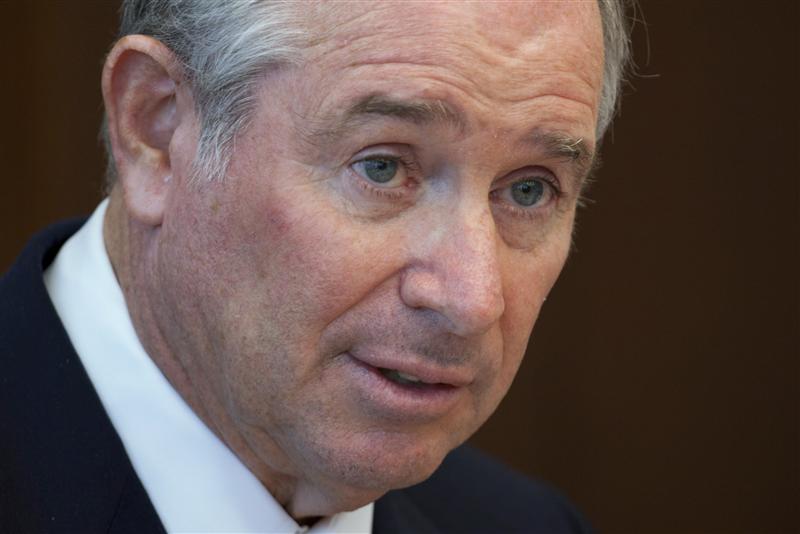Skift Take
Extended Stay America and Hilton are two totally different kinds of hotel companies, but Extended Stay America's IPO is likely to impact the timing and shape of a potential Hilton IPO. The most interesting thing is that if everything falls into place, it looks like Hilton's long-awaited IPO will finally be on tap for 2014.
Blackstone’s Extended Stay America filed papers this week for an IPO, a development that will be watched closely by another bullet in Blackstone’s private-equity arsenal: Hilton Worldwide.
Blackstone first acquired Extended Stay America in 2004, sold it in 2007, reacquired it with cohorts Centerbridge Partners and Paulson & Co. in 2010, and so far has cleared about $5 billion in profit and paid down a bunch of debt.
If market conditions fall into place, Blackstone is poised to cash in again, probably before the end of 2013 with an Extended Stay America IPO.
Blackstone’s history with Hilton is less convoluted, but probably more frustrating as Blackstone acquired Hilton for $26 billion in 2007, pre-recession, and has held onto it for six years — a very extended stay, or ownership period, for a private equity firm.
Test Case?
“My personal feeling is that Blackstone is testing the waters here for a Hilton IPO,” says RockCheetah’s Robert Cole, with some observers looking for a Hilton IPO to finally take place in 2014, if things go right.
“I don’t think Hilton is the reason for the Extended Stay IPO, but I think it may have something to do with the timing of it,” Cole says. “If this one does well, I would predict a Hilton IPO would come sooner and be more aggressive in terms of pricing.”
And, if the Extended Stay America IPO disappoints, then Blackstone “may wait a bit longer on Hilton and wait for the hotel market to strengthen further,” Cole says.
The bottom line for Blackstone, as Cole sees it: “They know what to do with every asset they control. They will want to get a good, accurate read on market sentiment to make the biggest killing possible.”
Tomatoes and Potatoes
Cole would readily acknowledge that mid-price Extended Stay America, with 682 properties in North America, is an entirely different animal than Hilton, with its 10 brands and 3,900 properties dispersed across 90 countries.
“Extended Stay and Hilton are second cousins as opposed to being brother- and sister-type businesses, says Henry Harteveldt, travel industry analyst for Hudson Crossing. “But, certainly if it goes well with the Extended Stay IPO, it will give Hilton more confidence in the marketplace.”
“However, if Extended Stay doesn’t do well, Hilton might still do well because of the tangible differences,” Harteveldt says.
Getting Into Franchising
Meanwhile, one aspect of the Extended Stay America IPO that hasn’t drawn much attention is that the company, which currently owns and operates virtually all of its hotels, says it may get into franchising them.
That would coincide with a hotel industry trend that has major chains such as Wyndham, Starwood and InterContinental Hotels steering away from the volatility of the real estate business in favor of what’s called an “asset-light” approach.
“Actually the extended stay niche is perfect for franchising,” says Steven Carvell, associate dean for academic affairs and a finance professor at Cornell University’s School of Hotel Administration. “The general feel of the public area and space considerations, as well as in-room amenities, will work well, and still provide room for individual operators to add local flavor and special amenities that seem to provided added value to guests in specific markets.”
Franchising, says Harteveldt would enable Extended Stay to “use its cash in more effective ways instead of paying a mortgage.”
Extended Stay America already believes that its higher operating margins and occupancy rates give it a competitive edge over traditional hotels.
Carvell believes franchising would work in Extended Stay America’s favor, too.
“If anything, the significance is that it will definitely enhance the market value of Extended Stay America as it would allow for greater market presence without requiring it to be tied to the real estate business,” Carvell says. “Perhaps some of the REITs would be the real estate holders, and allow Extended Stay America to flag their properties.”
And, if the IPO succeeds, Blackstone, Centerbridge Partners and Paulson & Co. would still control Extended Stay America, and use the proceeds to enrich themselves, pay down some debt, and pick up some acquisitions to further push things along.
Have a confidential tip for Skift? Get in touch
Tags: blackstone, hilton, ipo
Photo credit: Schwarzman, Chairman, CEO and Co-Founder of the Blackstone Group, speaks during a news conference in Hong Kong. Tyrone Siu / Reuters
